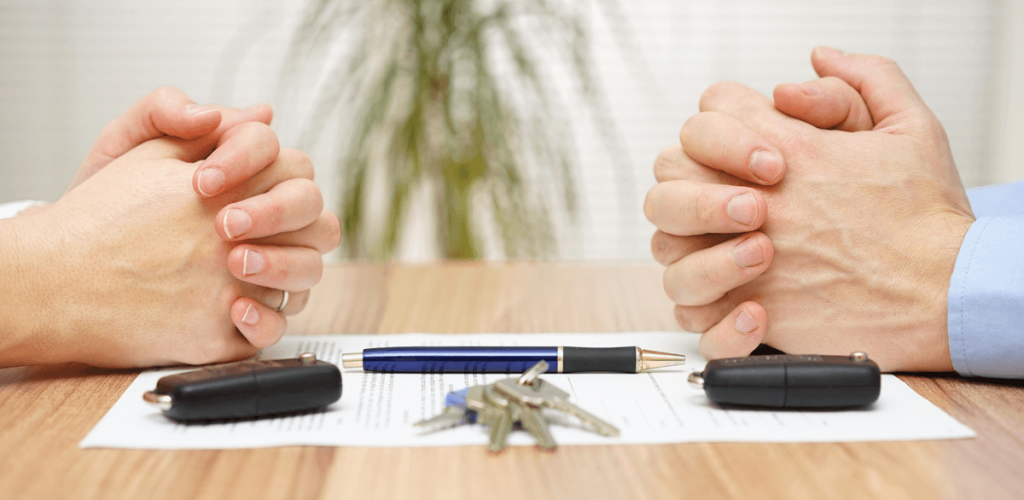When a couple goes through a divorce, they need to make several agreements on the joint assets. A marital home is one of them; however, selling the house is never the only option. Nevertheless, in the wake of a divorce, it is usually the case that one of the two people wants the house. In addition to that, who might get the house depends on your state’s law. Thus, if you think that the deed and agreements would matter, it might not. Following are some of the things that would not make an impact on who might get the house after a divorce:
- Whether you purchased the house before the marriage or after it
- The name of the deed, mortgage, or any prenuptial agreements
- Your or your partner’s wishes or finances
Thus, before initiating the division process and before meeting with the mediator, you might want to understand the basics of how this works and what options you might have. Always make sure to understand all the options before proceeding to the decision. Let us take a look at it:
Who Gets the House?
As a significant part of the divorce settlement, the divorcing spouses must divide their assets, including their house. However, as we mentioned above, state laws settle the negotiation in most cases, but that applies when you take the case to court. Nevertheless, if your spouse is ready to carry a negotiation outside the court, go on and pursue that. You can find out what is best for both of you. Consider the following assets
1. Marital Property
It refers to everything that you and your spouse bought together. It can include a car, money earned and saved, and a home that you bought together.
2. Separate Property
In a separate property, the assets that belong to one spouse will belong to them only. However, that would depend on whether you live in a community property state (everything you own gets distributed as 50/50) or an equitable distribution state (assets are distributed fairly, and judges decide on finances and earnings).
House Options When Going Through A Divorce
A house is one of the prime assets that anyone owns and contributes highly towards the financial future. When going through a divorce, you might want to arrive at a fruitful resolution that is equally beneficial for both parties. Here are the six options that you might consider before proceeding with the case to the court:
1. One Partner Buys Another Property, And the Other Keeps the House
If your house was bought recently, buying a new space for yourself might be an easy option. In this scenario, the person who gets to keep the house is always the one who can afford it. However, you must ensure the following:
- Can either of the partners afford to buy the house?
- Can the one who keeps the house qualify for a mortgage?
2. Both Live in The House till They Agree to Sell It
If you pursue this option, you must ensure to spell it out in the divorce agreement that if one of the partners is no longer happy, they can make an effort to trigger the sale. Following are the most considerations for this option:
- None of the partners should feel like they are getting short-end.
- If you have agreed to wait, you must also agree to a wait-limit.
- Be sure to consult a tax professional to learn the details of your situation.
Want to Skip the Hassle of Selling your house?
Get a Cash Offer for Your House!
3. Rent the House and Become Co-Landlords
Before pursuing this option, remember that you are about to go into business with your ex-spouse. There is a lot to figure out and to agree upon. From deciding who should be in charge of maintenance, repairs, etc., to splitting mortgages and insurance, there is a lot to decide. It will help if you consider the following clauses:
- Would you and your former spouse carry a healthy business relationship?
- Are you willing to become a landlord, or do you want your equity share?
- Figure out if your housing market allow this kind of arrangement
4. One of The Partners Become A Tenant
It is one of the few options that you can consider. Like becoming co-landlords, you can also consider becoming a tenant if one of the partners is not okay with moving out. Following are the things that you must consider before pursuing this option:
- There can be privacy issues with exes sharing a single building.
- There must be some considerations on capital gain tax exemptions.
- The person living in the smaller section must be leveraged (should not pay half of the mortgage)
5. Sell the House and Split the Amount
If neither of the partners is willing to pursue any of the options listed above, you must consider selling the house and splitting the proceedings. When it comes to selling, you have two options. You can either put the house on the market for the general public or you can sell it to an investor in cash. Of course, selling the house also has its difficulties and adds much stress to the divorce finalization. Following are the must-have considerations in this scenario:
- Selling a home is not easy, so be ready to add another task to your stress docket.
- You must analyze the market’s ups and downs properly to ensure a high financial outcome.
Conclusion
If you are ready to sell your house, contact CASHmyRE today! We will help you sell your house and get the best return on finance in three simple steps: contact us, schedule a visit and get an offer. We know that selling a house is a lot of stress; thus, we are here to ease your stress!




